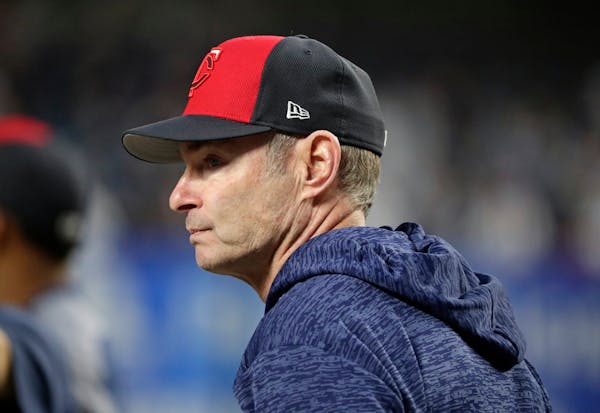The good news about the Twins' 8-4 wild card loss to the Yankees earlier this week is that it reinforced on a micro level but on a much larger stage the things we learned about the Twins during the 2017 season.
The good: The Twins already have an above-average lineup filled with plenty of players who take good at-bats and should continue to improve. Those players don't always succeed, but they don't seem to fear the moment. A lot of those same guys are also plus-defensive players and transformed the Twins from a bad to good defensive team — an upgrade that sneakily told a lot of the story of the team's 2017 success.
The bad: The pitching staff, while not awful, does have a definite lack of frontline starters and back end relievers. The Twins have the middle figured out — plenty of candidates to pitch the third game of a playoff series or the seventh inning of a big game, but not enough high-end arm talent to compete in a meaningful way with the best teams.
That makes their offseason shopping list easy: pitching, pitching, pitching. But that makes their offseason shopping list hard because they want and need the same thing as pretty much every other team, even the greedy ones who already seem to have their share.
The first offseason question was what the Twins were going to do with manager Paul Molitor. Now that he has reportedly been retained, some other questions will come into focus. The Twins likely will have to make some choices in their pursuits, so let's examine a few of them here:
What takes priority — starting pitching or the bullpen? Baseball has no salary cap, so a fan might make the argument that this doesn't have to be a choice. Spend! Buy all the starters and all the relievers.
The reality is that the Twins will control their payroll. Maybe they'll spend a little more than they did in 2017, when their opening day payroll ranked No. 22 in the majors in a year in which they didn't have high expectations, but they won't suddenly jump into the upper range. You can argue that the Twins artificially put a cap on their own spending, but that doesn't change what we expect them to spend.
So they will make some choices. I asked on Twitter whether fans would rather have one top-end starter or three very good relievers, and the vast majority of you picked the bullpen trio.
I tend to agree. That's not to say the Twins shouldn't be able to address both the rotation and bullpen in some meaningful way, but if there is going to be a priority in 2018 and beyond, baseball has evolved into a bullpen game.
Who is out there? MLB Trade Rumors has a good list of pending free agent starting pitchers and relievers. Guys like Jake Arrieta (Cubs) and Yu Darvish (Dodgers) are top-line starters, and there are other names to consider as well. In the bullpen, a guy like Wade Davis (Cubs) should fetch a lot of money but could be worth it. Old friends Anthony Swarzak and Brandon Kintzler could be lower-priced options.
But that pool, particularly meaningful starters, will probably get pretty shallow pretty fast when free agency begins after the conclusion of the World Series.
Does a trade make sense? You expand your pool if you are willing to make a trade instead of just focusing on free agency. The Twins have assets, particularly in the middle of the infield. If, say, Derek Falvey and Thad Levine decide to commit to Brian Dozier long-term and he agrees on a deal, could a prospect like Nick Gordon become the centerpiece of a trade that nets a front-line starter from a rebuilding team? Do you hold your assets until next year's trade deadline when there is more movement?
Is now even the time to really make a big move? The questions above lead to this larger philosophical question.
The Twins' move from 59 to 85 victories created a new set of expectations, but I'm not sure if Falvey and Levine think it accelerated their timeline. That is to say, if they over-reach and over-spend now, they could regret it later when the Twins are in an even better position to contend. They could stay the course and hope that in-house candidates like Jose Berrios, Stephen Gonsalves and co. become consistent top-end starters and that two or three hard throwers in the bullpen emerge or come cheaply.
That said, they are also in somewhat of a competitive sweet spot whereby some of their best everyday players are still bargains because they are so young and under financial team control. Falvey and Levine also know that some expensive contracts come off the books in the next couple of years — Joe Mauer after 2018 and Phil Hughes after 2019 chief among them — enabling them to manage payroll even as those young players become eligible for arbitration and eventually free agency.
It will be fascinating to watch how it all unfolds, particularly after a relatively quiet first offseason under the new regime and a surprising 2017 campaign.
Kansas adds AJ Storr after he led Wisconsin in scoring this season
Butler, Williamson injuries are part of story for Heat-Bulls and Kings-Pelicans play-in finales

